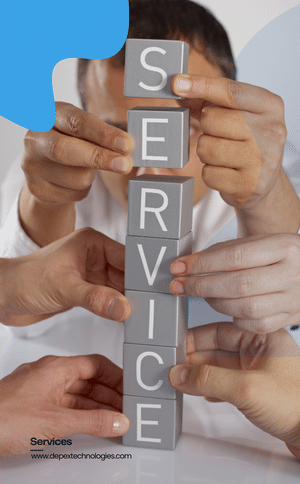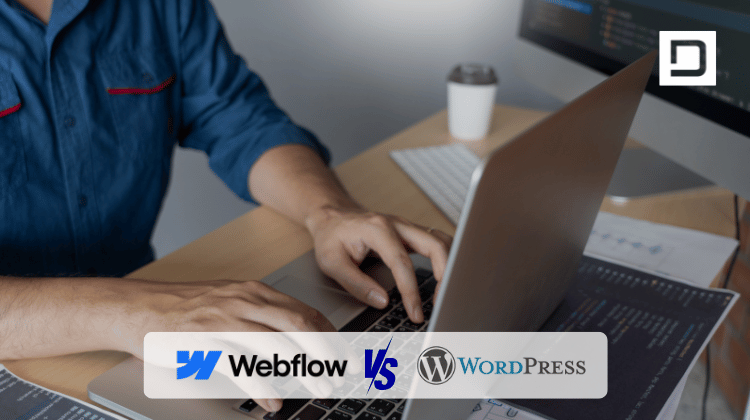Webflow vs WordPress: An Expert’s Review 2025
In the ever-evolving digital landscape, businesses and individuals alike seek the best website-building platform to meet their needs. Two of the most popular website development tools today are Webflow and WordPress. While both platforms enable users to create stunning websites, they serve different purposes and cater to different audiences.
In this expert review, we will compare Webflow and WordPress in 2025, examining their ease of use, design flexibility, SEO capabilities, security, scalability, pricing, and overall suitability for different types of users. Whether you are a small business owner, a web developer, or an enterprise looking for the best website solution, this comparison will help you make an informed decision.
1. Overview of Webflow and WordPress
What is Webflow?
Webflow is a cloud-based website design and development tool that offers a no-code/low-code approach. It allows designers to build visually appealing and highly customizable websites without extensive coding knowledge. Webflow combines a visual editor with a powerful CMS (Content Management System) and hosting capabilities, making it a great option for designers and businesses looking for a seamless workflow.
What is WordPress?
WordPress is the most widely used open-source CMS, powering over 40% of websites globally. It offers extensive customization through themes and plugins, making it a versatile platform for bloggers, e-commerce sites, corporate websites, and more. WordPress comes in two versions: WordPress.org (self-hosted) and WordPress.com (hosted solution).
2. Ease of Use
Webflow: User-Friendly Visual Editor
Webflow’s drag-and-drop interface makes it easy for designers to create custom websites without writing code. With a live preview feature, users can see real-time changes. However, beginners might experience a learning curve, especially when dealing with Webflow’s interactions and animations.
WordPress: Flexible but Requires More Setup
WordPress offers a simple dashboard, but users need to install plugins, configure themes, and manage hosting separately. The Gutenberg block editor has improved usability, but beginners may find WordPress overwhelming due to the technical aspects of setup, maintenance, and customization.
Winner: Webflow (for ease of design); WordPress (for content management)
3. Design Flexibility and Customization
Webflow: Complete Creative Control
- Fully customizable layouts with a visual interface
- Advanced animations and interactions
- No reliance on pre-made themes
- Clean, semantic code for custom design elements
WordPress: Unlimited Customization with Plugins and Themes
- Thousands of themes available
- Customization through page builders like Elementor, Divi, and WPBakery
- Full control with CSS and PHP coding
- Dependency on third-party plugins for advanced design elements
Winner: Webflow (for designers); WordPress (for extensive customization through themes and plugins)
4. SEO Capabilities
Webflow: Built-in SEO Tools
- Automatic generation of clean code
- Easy on-page SEO edits (meta tags, alt text, canonical URLs)
- Fast loading speeds with optimized hosting
- Schema markup and structured data support
WordPress: Powerful SEO Options with Plugins
- Yoast SEO, Rank Math, and other plugins enhance optimization
- Fully customizable URLs, title tags, and metadata
- More control over site speed with caching plugins like WP Rocket
- Can become slow if overloaded with plugins
Winner: Tie (Webflow offers built-in SEO, but WordPress provides more flexibility with plugins)
5. Security
Webflow: Secure by Design
- Built-in SSL certificates
- Automatic updates and security patches
- No need for third-party security plugins
WordPress: Secure with Proper Configuration
- Requires security plugins (e.g., Wordfence, Sucuri)
- Regular updates needed for core, themes, and plugins
- Vulnerable to hacking if not maintained properly
Winner: Webflow (better out-of-the-box security)
6. Scalability and Performance
Webflow: Scalable for Small to Medium Businesses
- Built-in CDN (Content Delivery Network) for speed optimization
- Limited third-party integrations compared to WordPress
- Suitable for design-heavy sites but may lack advanced enterprise-level features
WordPress: Scalable for Any Business Size
- Can handle high traffic with optimized hosting (e.g., VPS, Cloud Hosting)
- Large community and developer support for scaling solutions
- Extensive integrations with enterprise tools (e.g., CRM, ERP)
Winner: WordPress (for large-scale projects and enterprises)
7. E-commerce Capabilities
Webflow: Integrated E-commerce Features
- Built-in e-commerce functionalities (product pages, cart, checkout)
- No need for third-party plugins
- Limited payment gateways (Stripe, PayPal, Apple Pay)
WordPress: WooCommerce Dominates
- WooCommerce is the most popular e-commerce plugin
- Extensive plugin ecosystem for payment, shipping, and marketing
- Scalable for small businesses and enterprises alike
Winner: WordPress (for e-commerce flexibility and scalability)
8. Pricing
Webflow Pricing
- Free plan (with Webflow branding)
- Paid plans start at $14/month for basic websites
- E-commerce plans start at $29/month
- Hosting included in all paid plans
WordPress Pricing
- Free to use (self-hosted version)
- Domain + hosting costs (~$5–$30/month)
- Premium themes and plugins can add extra costs
Winner: WordPress (lower entry cost, but Webflow provides an all-in-one solution)
9. Which One Should You Choose?
Choose Webflow if:
- You are a designer who wants full creative control
- You need a visually-driven website builder
- You prefer built-in hosting and security
- You want a hassle-free, no-plugin approach
Choose WordPress if:
- You need a highly scalable, customizable website
- You require advanced e-commerce capabilities
- You want access to thousands of plugins and themes
- You have the technical knowledge or a developer to maintain the site
Final Verdict: Webflow vs WordPress in 2025
Both platforms offer unique advantages, making them suitable for different users. If you prioritize design flexibility, built-in security, and an all-in-one hosting solution, Webflow is a great choice. However, if you require advanced features, e-commerce capabilities, and endless customization, WordPress remains the superior option.
At Depex Technologies, we specialize in both Webflow and WordPress development, helping businesses choose the right platform for their needs. Whether you need a visually stunning Webflow site or a powerful, scalable WordPress solution, our expert team is here to assist you.






